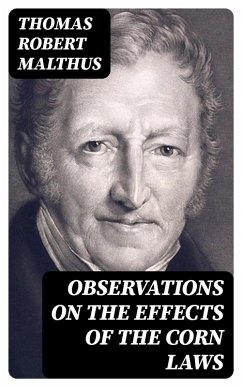Thomas Robert Malthus's 'Observations on the Effects of the Corn Laws' delves into the economic implications of legislation surrounding grain prices in 19th-century England. Written in a straightforward and analytical style, Malthus explores the impact of protectionist measures on agricultural production and social welfare. In the context of the Industrial Revolution, Malthus provides a critical examination of the Corn Laws, shedding light on their consequences for both the agricultural sector and the broader economy. With a focus on empirical data and economic theory, the book presents a compelling argument against government intervention in the market, advocating for free trade policies instead. Malthus's work serves as a seminal text in the history of political economy, influencing subsequent debates on trade and protectionism. Malthus's expertise as a political economist, combined with his empirical research, adds credibility to his analysis of the Corn Laws. His background as a demographer and scholar of population dynamics offers a unique perspective on the intersection of economics and social policy. Readers interested in the intersection of economics, politics, and social welfare will find 'Observations on the Effects of the Corn Laws' to be a thought-provoking and enlightening read.
Dieser Download kann aus rechtlichen Gründen nur mit Rechnungsadresse in A, B, BG, CY, CZ, D, DK, EW, E, FIN, F, GR, H, IRL, I, LT, L, LR, M, NL, PL, P, R, S, SLO, SK ausgeliefert werden.









